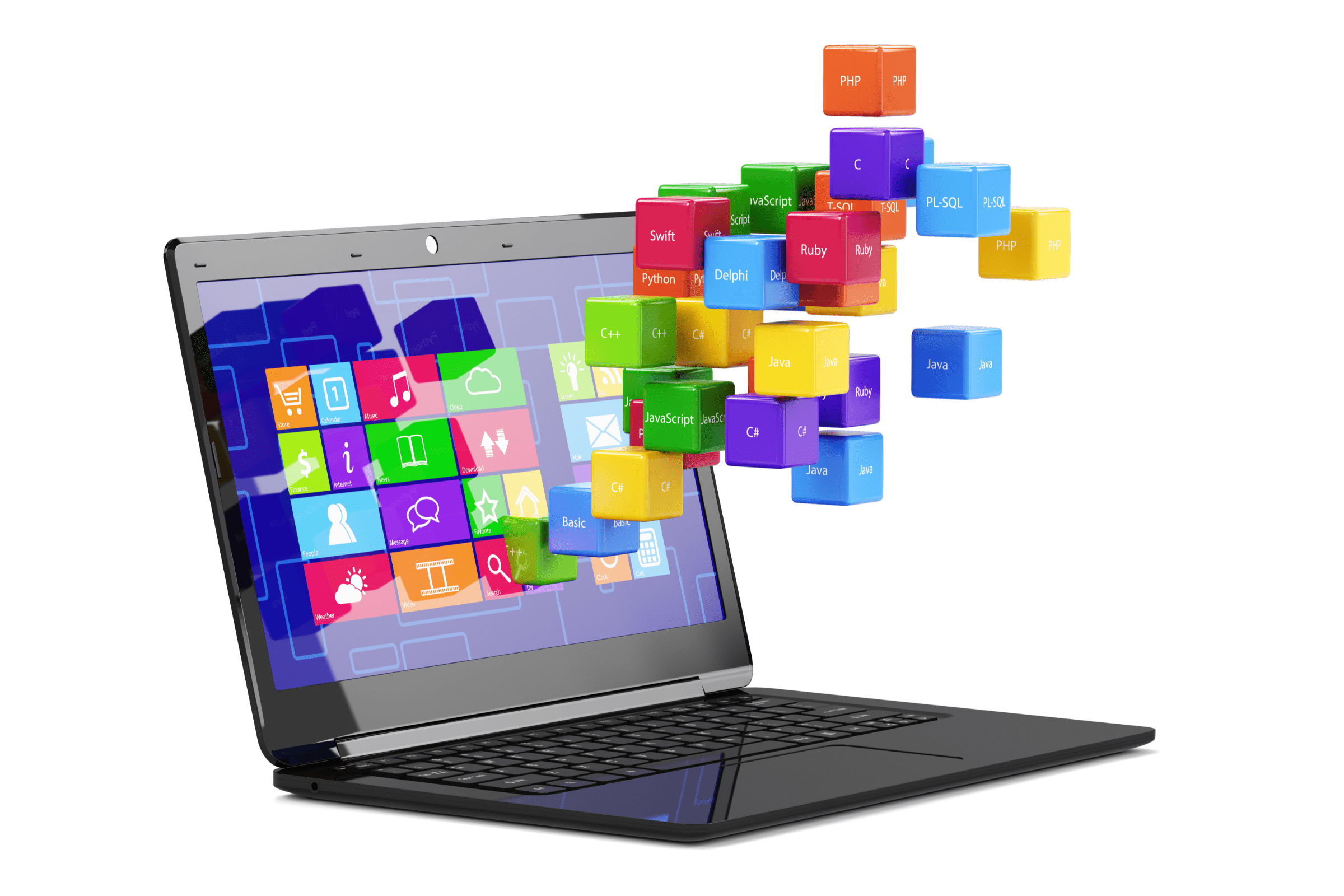All digital products and services are developed using programming languages, codified sets of instructions that can be used to produce various kinds of outputs, like processing data or controlling devices.
A scripting language, by comparison, is a type of interpreted programming language (executed line by line, not translated into machine code) that is typically used for writing code that can automate tasks, add dynamic features to web pages, or serve as the digital connective tissue between different parts of a software system.
Scripting languages are designed to be simple and flexible, with a focus on making it easy to accomplish common tasks. Some of the most popular scripting languages include Python, Perl, Ruby, JavaScript, and PHP. In general, scripting languages are well-suited for tasks that require rapid development and dynamically generated code.
Key Differences Between Scripting and Programming Languages
The primary distinction between these two types of languages is that the former is typically interpreted, meaning that the code is executed line by line, rather than compiled into machine code and run as an executable file. Hence, with scripting languages, programmers can make changes to the code and test it without having to recompile the entire program.
Compiled programming languages, on the other hand, are translated into machine code and saved as an executable file, which can be run without the need for an interpreter. Programming languages are often more powerful and efficient than scripting languages, but they can also be more complex and harder to learn. Examples of compiled programming languages include C, Java, and C++.
Scripting languages are used for smaller tasks, whereas programming languages help build large and complex software applications, such as operating systems and enterprise-level software. They are also used for developing lower-level system software, such as device drivers and system utilities.

Optimal Scripting Use Case Examples
- Task Automation: Automate repetitive tasks, such as batch processing of files, generating reports, and performing data manipulations.
- Glue Code: Stitch together different software systems, such as by combining the output of one program with the input of another or automating the execution of multiple programs in sequence.
- One-off Tasks: Perform a quick calculation, test a code snippet, and explore data.
- Dynamic Web: Manipulate web pages, such as by extracting data, filling in forms, and clicking buttons automatically.
- Task Scheduling: Run a script at a specific time, or on a specific schedule.
- System Administration: Automate tasks like creating backups, setting up new users, and monitoring systems.
- Shell Scripting: Write shell scripts (scripts that run in a command-line shell environment) to automate setting up development environments, running tests, and deploying software.
Optimal Programming Language Use Cases
- Application Development: Create everything from simple desktop applications to large-scale enterprise systems.
- System Programming: Develop operating systems, device drivers, or other low-level system components.
- Database Programming: Query databases, update data, and develop database applications.
- Mobile Development: Build native applications for Android and iOS devices.
Is scripting harder than programming?
In general, scripting is often easier to learn than programming, as scripting languages typically have fewer syntax rules and conventions, and they may also provide a higher-level abstraction of programming, making it easier to accomplish common tasks with less code.
Does scripting count as programming?
Scripting is similar to programming in that it requires writing, debugging, and testing code, but the goals and intended uses of scripting are often different than those of traditional programming. However, despite that difference, scripting is still technically a form of programming.
The Advantages of Scripting Languages
- Interactivity: Because scripting languages are interpreted, code can be developed and tested very rapidly. This makes it easy to try out new ideas and quickly see results, making scripting languages well-suited for interactive and exploratory programming.
- Accessibility: Scripting languages are designed to be simple, with a focus on making common tasks straightforward and intuitive. This makes them a good choice for beginners or for tasks that don’t require a lot of computational power.
- Dynamic Behavior: Scripting languages often have dynamic typing, which means that the type of a variable can change at runtime. This can make it easier to write flexible and adaptable code, as well as make it easier to work with data in a variety of formats.
The Advantages of Programming Languages
- Performance: Compiled code can result in faster performance and more efficient use of system resources, making programming languages well-suited for computationally intensive tasks and large-scale software systems.
- Type Safety: Many programming languages use static typing, which means that variables must be declared with a specific type before they can be used. This can help catch errors at compile time, leading to more robust and reliable code.
- Scalability: Programming languages are often designed to handle the demands of large-scale software systems, with features like garbage collection, efficient memory management, and optimized data structures.
Stay connected to the Unosquare blog for more helpful guides to modern software development, and get in touch today if you need added support for your next project from our experienced and talented development professionals.



